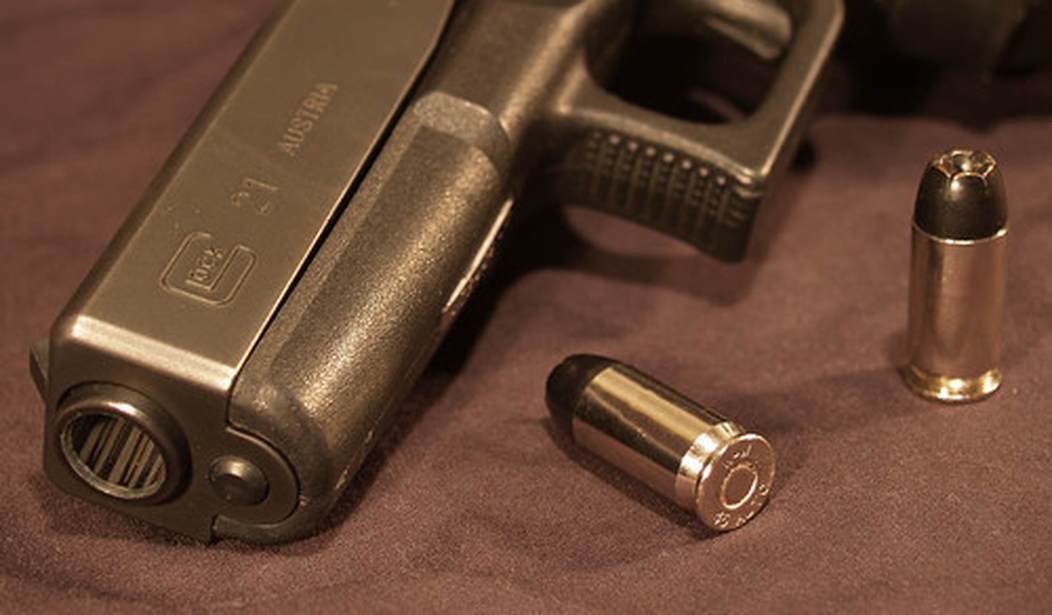Steven Albert Cooper isn't allowed to possess a firearm. When he was 15, Cooper robbed a convenience store in Duluth, Minnesota and shot two of the store's employees in the back. After taking a plea deal, Cooper was sentenced to 20 years behind bars, but was released after spending about 13 1/2 years in prison.
Cooper knows that getting caught with a gun could send him back to prison, so when he discovered a 9mm pistol in an SUV that he owned but was used by his brother, who'd passed away a few months earlier, Cooper wrapped up the handgun in a sweatshirt and stored it in the front vestibule of his apartment building so he could turn it over to his probation officer.
While Cooper was arguably trying to do the right thing (he was even meeting his probation officer to self-report that he'd violated his probation by using drugs), he ended up arrested and charged with being a felon in possession of a firearm.
Now a judge has determined that Cooper will face trial, rejecting arguments from his attorney Cooper shouldn't face a five-year prison sentence for trying to do the right thing. Judge Dale Harris says that, despite his "serious misgivings", it should be up to a jury to decide what punishment, if any, Cooper should receive.
The judge wrote in his recent order that his misgivings were “compounded by a particularly harsh mandatory minimum sentencing statute,” requiring the court to impose at least five years in prison if Cooper is convicted.
While theorizing some ways the case may play out, Harris wrote that “none of those possibilities gives this court a legal justification to dismiss the charge at this state of the proceedings.”
... Harris further noted that appellate courts have, on several occasions, considered claims that “fleeting possession” of a firearm by an ineligible person does not violate the state statute. The courts have consistently rejected those arguments, and the plain language of the law does not allow for any exceptions.
“Defendant does make a strong public policy argument in support of his position,” Harris wrote. “Charging (Cooper) in this case could discourage other prohibited persons from turning in firearms to proper authorities. The court does not disagree; however, those are arguments for the Legislature to address, not the court.”
The Duluth News Tribune reports that Cooper had taken a plea agreement in which he would admit to possessing a firearm as a prohibited person in exchange for a probationary sentence, but the deal fell apart when it was discovered that probation isn't an option for this particular offense.
Prosecutors contend that Cooper's brother's DNA wasn't found on the pistol, and his mother has stated that Cooper was the only one who had access to the SUV, but it doesn't sound like they have any solid proof that Cooper possessed the pistol for longer than the couple of minutes it took to wrap it in a sweatshirt and stow it away for his probation officer. There's also been no suggestion by prosecutors that the gun in question was ever used in a crime, though I don't believe they've yet disclosed who was the original buyer of the pistol and whether it was a straw purchase.
At the very least, this seems like a waste of time and resources on the part of prosecutors. But as the Minnesota Gun Owners Caucus argued after Cooper was formally charged last year, throwing him back behind bars actually sends the wrong message to other prohibited persons who might find themselves in a similar position.
On Friday, we sent a letter to the St. Louis County Attorney in regard to the case of Steven Cooper, a convicted felon who found a firearm in a vehicle he was given by his brother and turned it into his parole officer. He has since been arrested by Duluth PD and charged by the… pic.twitter.com/DKh99rFTiN
— MN Gun Owners Caucus (@mnguncaucus) April 10, 2023
Persons prohibited from possessing firearms who come into the possession of firearms should be able to turn them into law enforcement without fear of criminal charges. This is in the best interest of public safety, as it ensures that firearms are safely and responsibly disposed of, rather than being left in unsafe locations or falling into the hands of criminals, children, or other prohibited persons.
I would have used "secured" rather than "disposed of", but other than that minor quibble I agree 100 percent with the Caucus's position here. What interests of justice are being served by throwing Cooper back behind bars because he wrapped up the pistol and stored it away instead of simply leaving in the SUV and telling his probation officer where to find it?
While I wish the judge would have granted Cooper's request to dismiss the case, it's really the St, Louis County Attorney's office that bears the most culpability for Cooper's current predicament. Honestly, I'm not even sure why they'd want to take this case to trial. Cooper's past doesn't exactly make him a sympathetic figure, but it's going to be pretty easy for his attorneys to argue that charging him under these circumstances is prosecutorial overreach and that five years behind bars for trying to do the right thing would be a miscarriage of justice. We'll see if the county attorney has a change of heart in the months ahead, but if not, I hope that a jury of Cooper's peers will acquit him when his trial takes place in late July.









